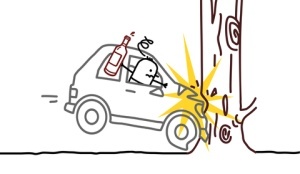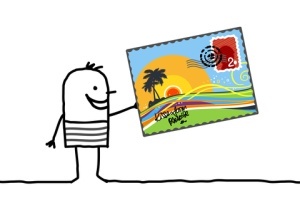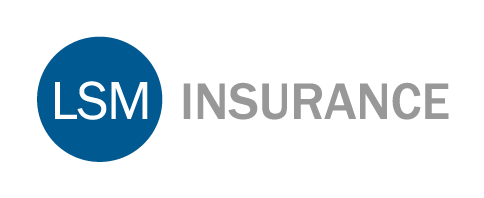Get a free Auto Insurance quote from 20+ Canadian insurers

This list is the most comprehensive overview of all opportunities to save on Insurance in Canada. It was compiled based on the results of numerous discussions with a number of insurance brokers and research of different insurance offerings. In addition, when possible, names of insurance companies offering particular discounts were added (Insurance companies are mentioned solely for the benefit of the reader as we do not endorse any of them). If you find this list useful,bookmark it and share with others! So, let’s start!
Save on all insurance types:
1.Shop around: Search, Compare, and switch insurance companies. There are many insurance providers and their price offerings for the same policies can be very different, therefore use multiple online tools and talk to several brokers since each will cover a limited number of insurance companies.
2.Bundle: Do you need Home and Auto Insurance? Most companies will offer you a discount if you bundle them together.
3.Professional Membership: Are you a member of a professional organization (e.g. Certified Management Accountants of Canada or The Air Canada Pilots Association)? Then some insurance companies offer you a discount e.g. Meloche Monnex (Insurance Reviews for Meloche Monnex Insurance)
4.Students: Being a student alone can result in a student discount e.g. with State Farm (Insurance Reviews for State Farm Insurance)
5.Alumni: Graduates from certain Canadian universities ( e.g University of Toronto, McGill University) might be eligible for a discount at certain Insurance providers (e.g. TD Insurance) (Insurance Reviews for TD Insurance)
6.Employee / Union members: Some companies offer discounts to union members ( e.g. IBM Canada or Research in Motion)
7.Seniors: Many companies offer special pricing to seniors.
8.Direct insurers: Have you always dealt with insurance brokers / agents? Getting a policy from a direct insurer (i.e. insurers working via call-center or online) often can be cheaper (but not always) since they do not pay an agent/broker commission for each policy sold. Examples of direct providers e.g. Belairdirect, TD Insurance (Insurance Reviews for Belairdirect Insurance)
9.Annual vs. monthly payments: In comparison to monthly payments, annual payments save insurers administrative costs (e.g. sending bills) and therefore they reward you lower premiums.
10.Loyalty: Staying with one insurer longer can sometimes result in a long-term policy holder discount e.g. Desjardins Insurance (Insurance Reviews for Desjardins Insurance)

12.Welcome discount: Some insurers offer a so called welcome discount e.g. 5% at Grey Power (Insurance Reviews for Grey Power Insurance)
13.Benchmark your costs: Knowing how much other consumers similar to you pay for their insurance can help you identify the most cost-friendly insurance providers. e.g. using Insurance Price Comparison to compare insurance premiums to your peers
Get cheap car insurance:
Auto insurance is one of the most expensive insurance types and, thus finding opportunities to get very cheap car insurance can save hundreds, if not thousands, dollars each year.
14. Car Insurance Deductibles: Increase your car insurance deductibles if you believe that you are capable of incurring higher payments for damages in case of an accident. This is especially suited for more experienced car drivers.
Interested in Auto Insurance?
Get a free, no-obligation quote
We compare rates from over 20 insurers to show you 3 best quotes
16. Minimal coverage: Driving an old car without large value? Get a minimal coverage required by law (mainly liability) w/o collision damage (you are still protected if you damage somebody’s car but damages on your car will not be covered)
17. Pay-as-you-drive: Some insurance providers can reduce your insurance premiums based on your driving profile (capturing data via a special device added to your vehicle)
18. Leverage your Credit Card: Check if your credit card insurance includes rental car protection. Paying with a card that has insurance for rental car protection can you save you around $20 per day in Collision Damage Waiver fees. (Our Credit Card Navigator helps to find rental car insurance on your credit card)
19. Leverage rental car coverage: If you frequently rent cars and have an auto insurance policy, you should check if your own auto insurance policy actually covers the rental car. If it is the case, you can save on all Collision Damage Waiver costs for rental vehicles.
20. Rental car rider: If your existing auto insurance policy does not cover your rental car, you can often add it as a rider (policy extension) for $20-30 dollars a year. Compared to $20/day you would pay when renting a car, it’s not a bad deal!
21. Location, location, location: Car insurance costs are different from one province to another (e.g. moving from Ontario to Quebec will surely reduce your insurance costs by half – Car Insurance in Ontario costs significantly more than Car Insurance in Quebec). If you move within a province, you should check for any changes in car insurance costs, and ideally you should move to where costs are lower (e.g. Burlington, Ontario has one of the highest car insurance rates in Ontario)
22. CAA member: CAA Members: Are you a member of the CAA? Some insurance providers will reward you with lower insurance premiums, including, of course, the CAA. (Insurance Reviews for CAA Insurance)
23. Dashboard camera: Get a dashboard camera for your vehicle. Even though installing a dashboard camera does not result in direct savings (insurance companies do not offer any insurance discount related to dashboard cameras) but it can prove you not-at-fault when it is the case in an accident. It results in you avoiding unfair premium raises.
24. Driving Course: Successfully completing a driving course is sometimes recognized by some insurance providers and could help you reduce your premiums. (Insurance Reviews for Belairdirect Insurance)
25. Improving your driving record: Do you have a bad driving record? Every three years previously incurred tickets are removed from your insurance history and your insurance premiums can go down.

27. Age: Senior drivers enjoy lower auto insurance premiums. Thus in several years your premiums can go down.
28. Car Make and Model: Wisely choose your car, as some car models are more susceptible to theft or even have a history of more risky drivers (e.g. Toyota Camry, Acura MDX, Toyota RAV4, and Honda Civic are usually quite expensive to insure)
29. Good Student: Yes, having good grades can have many positive impacts, and even on your auto insurance rates! E.g. State Farm rewards students who are younger than 25 and have good grades (grade average of B or higher) with a discount up to 25%. (Insurance Reviews for State Farm Insurance)
30. Multiple-cars-bundle: Bundle several cars on one policy and your rate can go down
31. Anti-theft system: Installing a certified anti-theft system in your car results in a lower risk of theft and thus can lead to insurance discounts.
32. Winter Tires: Having winter tires is important for driving safety during the winter, but can also help reduce your insurance premiums.
33. Repair costs: Choose a car that would cost less to repair in case of damage. The repair costs for certain cars (e.g. Mini Cooper or BMW) are higher than other (e.g. Ford Focus) and insurance providers are aware of that.
34. Claim History: Keeping a clean claims history can sometimes be more financially feasible than submitting claims for small damage repairs which could result in increased premiums. Contacting an insurance provider/broker could help you find out what makes sense.
35. Being married: In most provinces your marital status affects your insurance premiums (except in Nova Scotia)
36. Short distance to work: Finding a house close to your place of work reduces the distance that you need drive daily to work and thus results in lower insurance premiums.
37. Drop glass coverage: For cars with inexpensive windshields, it can be more economical to drop the glass coverage since in combination with the deductibles to be paid in case of an accident you’d pay more. It is up to you to calculate.
38. Retiree Discounts: Some insurance companies will offer different retirement discounts for drivers.
39. Disabilities: Some companies offer discounts for people with disabilities e.g. 25% at ICBC (Insurance Reviews for ICBC Insurance)
40. Hybrid vehicles: Many companies award driving a hybrid vehicle with lower insurance premiums e.g. Desjardin Insurance (Insurance Reviews for Desjardins Insurance)
41. Private Garage: Parking your car in a safe location (e.g. private or secure garage ) normally results in lower insurance premiums with auto insurance providers.
There is one particular type of car insurance coverage – a classical car insurance – that considers some additional factors when estimating insurance rates. Our website section on classical car insurance details will help you to find out more about this protection.
Get cheap home insurance:
42. Change your content coverage: Renting a Condo? You can often lower your content coverage. No need to insure your belongings to up to $250,000 if you only have a laptop and some IKEA furniture!
43. Renovations: Renovating your house can result in lower home insurance premiums, as home insurance premiums for older, poorly maintained dwellings are usually higher. Additionally, renovating only parts of your dwelling (e.g. the roof) can lead to insurance savings.
44. Pool: Adding a swimming pool to your house will likely lead to an increase in your insurance rates since your liability ( e.g. the risk of someone drowning) and the value of your house have increased.
45. Pipes: Insurers prefer copper or plastic plumbing – maybe it is a good idea to upgrade your galvanized / lead pipes during your next renovation cycle.
46. Wiring: Some wiring types are more expensive or cheaper than others to insure. Make sure you have approved wiring types, and by all means avoid aluminum wirings which can be really expensive to insure. Not all insurers will cover houses with aluminum wirings, and those that would, will require a full electrical inspection of the house.
47. Home Insurance deductibles: Like auto insurance, you can also choose higher home insurance deductibles to reduce your insurance premiums.
48. New Home: Check if insurer has a new home discount, some insurers will have e.g. Wawanesa or BCAA (Insurance Reviews for Wawanesa Insurance)
49. Claims-free discount: Some companies recognize the fact that you have not submitted any claims and reward it with a claim-free discount e.g. Grey Power
50. Mortgage-free home: When you complete paying down your house in full, some insurers will reward you with lower premiums e.g. RBC Insurance, Cooperators (Insurance Reviews for RBC Insurance)
51. Mortgage insurance: Getting mortgage insurance when you have enough coverage in Life insurance is not always necessary: mortgage insurance is another name for a Life/Critical Illness / Disability insurance associated with your home only but you pay extra for a convenience of getting insurance directly when lending the money. For example a Term Life policy large enough to pay off your home is usually cheaper.

53. Wood stove: Choosing to use a wood stove means higher premiums – Insurance companies often decide to inspect the houses with such installations before insuring them. A decision to get rid of it means a lower risk and thus lower insurance premiums.
54. Heating: Insurers like forced-air gas furnaces or electric heat installations. If you have an oil-heated home, you might be paying more than your peers who have alternative heating sources.
55. Bicycle: You are buying a new bicycle and thinking about getting extra protection in case it is stolen when you leave it on the street e.g. when doing your groceries? Your Home insurance might be covering it already.
56. Stop smoking: Some insurers increase their premiums for the homes with smokers as there is an increased risk of fire e.g. ThePersonal (Insurance Reviews for thePersonal Insurance)
57. Clean claim history: Keep a clean claim record without placing small claims, sometimes it makes sense to simply repair a small damage rather than claim it: you should consider both aspects: your deductibles and potential raise in premiums. Our home insurance reviews can inform you about home insurance claim experiences of other Canadians.
58. Rebuilding vs. market costs: Consider your rebuilding costs when choosing an insurance coverage, not the market price of your house (market price can be significantly higher than real rebuilding costs).
59. Avoid living in dangerous locations: Nature effects some locations more than others: avoid flood-, or earthquake-endangered areas when choosing a house.
60. Neighbourhood: Moving to a more secure neighbourhood with lower criminal rate will often considered in your insurance premiums.

62. Monitoring: Having your residence / apartment / condo monitored 24 hour can mean an insurance discount. e.g. via a security guard.
63. Hydrants and fire-station: Proximity to a water hydrant and/or fire-station can decrease your premiums as well.
64. Water damages: Avoid buying a house which may have water damage or has a history of water damage; a check with the insurance company can help to find it out before you buy the house.
65. Decrease liability risk: Use meaningful ways to reduce your liability risk (e.g. fencing off a pool) and it can result in your liability insurance premiums going down.
66. Plumbing insulation: Insulating your pipes will prevent them from freezing in winter and reduce or even avoid insurance claims.
67. Dependent students: Dependent students living in their own apartment can be covered by their parents’ home insurance policy at no additional charge e.g. with Desjardins (Insurance Reviews for Desjardins Insurance)
68. Retirees: Those who are retired can often get an additional discount – since they spend more time at home than somebody who works during the day and thus can prevent accidents like a fire much easier.
69. Leverage inflation: Many insurers increase your dwelling limit every year by considering the inflation of the house rebuilding costs. Make sure this adjustment is in line with reality and that you are not overpaying.
70. Credit score: Most companies use your credit score when calculating home insurance premiums. Having a good credit score can help you to get lower insurance rates e.g. with Co-operators (Insurance Reviews for Co-operators Insurance)
71. Stability of residence: Some insurers may offer a stability of residence discount if you have lived at the same dwelling for a certain number of years e.g. Grey Power (Insurance Reviews for Grew Power Insurance)
Get cheap life insurance:
72. Age: Apply for the policy when you are young and your premiums will be lower.
73. Round-up your age wisely: If you decide to buy a life insurance policy, make sure that your age rounds down and not up, i.e. if you are going to be 30 years old on December 31, buy the policy in the first 6 months of the year where your age is still rounded down to 29 and not 30.
74. Good health: If you are in a good health and have a good build (ratio of weight and height) when you apply for a life insurance policy, insurers will reward that with lower premiums.
75. Non-smokers: Stop smoking well in advance (at least a year) before applying for a policy – otherwise your premiums will double.
76. Good driving record: Ensure you have a good driving record before applying – a bad driving record is punished by life insurance provider (as by auto insurers) – your premiums will go up by extra 25-50%.
77. Gender: Female policyholders pay on average 25% less than male policyholders. Changing your gender will not really help – insurers consider the gender you were born with.
78. No depression: Mental health matters – those with a history of depressions pay between 50% and 200% more.
79. Family history: Having a healthy family without any serious diseases lowers your life insurance premiums as you are less likely to face a critical illness. Known serious issues in your family’s medical history can increase the premiums by 50% to 250%.

81. No excessive drinking: If you do not have any drinking issues, you can benefit from lower insurance rates – otherwise your premiums can increase by up to 50%. An intensive drinker would be considered somebody who drinks 3-4 beers a day.
82. Term instead of other insurance types: Choose Term insurance products instead of e.g. Universal Life. The first one is a pure insurance product whereas the latter one represents a combination of life insurance and investment product and often costs more.
83. Getting in shape: If you already have a life insurance policy and got in shape compared to your state when you signed up for a policy (e.g. spending hours in a gym), you can request a re-view of your life insurance premiums.
84. Driving offenses coming off your record: If your driving record improved while you have a life insurance policy, you can review your premiums with your insurer and get them reduced (typical time for smaller offenses to come off your driving record is 3 years)
85. Stop smoking: If you have a policy which you got when you were a smoker, stopping smoking and demonstrating to your insurer that you have not returned to it for at least 1 year will reduce your insurance premiums. Smokers typically pay double amount of premiums!
86. Stop drinking: Similar story with drinking – demonstrate that you had 1 year of no drinking and it will be reflected in your adjusted premiums for an existing life insurance policy.
87. Group Life insurance: Group Life Insurance can be an alternative to your Personal Life insurance if your employer offers sufficient coverage – at least you are protected as long as you work for the company.
88. Drop unnecessary additional coverages: Check additional riders offered with a life policy to decide if you need them e.g. Accident death benefit (higher payouts in case of death through an accident), term conversion rider (in case you want convert your Universal policy into Term)
89. Avoid guaranteed issue life policy: People with good health do not need a guaranteed issue life insurance policy (these are policies that do not require a medical exam but they cost more) – do a health check / exam and enjoy lower life insurance premiums.
90. One policy for your spouse and you: You can get one policy for both your spouse and you – it will be often cheaper than two single life insurance policies (also called a multi-life policy)
91. Adjust coverage amount: Make sure that you are not taking more insurance coverage (but also not less) than needed: perhaps $1,000,000 is enough – ask yourself and your insurance advisor if you really need $2,000,000?
92. Less-risky jobs: Not being involved into dangerous jobs like a member of the police bomb squad will help to avoid additional insurance premiums.
Save on travel insurance:

94. Various credit card perks: Not sure if you need to buy a Flight Delay, Trip Interruption/Cancellation, Baggage Loss, and Hotel/Motel Burglary insurance – check out your credit cards, sometimes you will be surprised what you will find. (Our Credit Card Navigator helps tofind credit card insurance on your card)
95. Liability via Home Insurance: Thinking to buy an extra Umbrella / Liability insurance for your trip e.g. in case you hit somebody when skiing? Your Home Insurance might already have a worldwide umbrella protection – check the policy or ask your broker / insurance provider.
96. Protection for belongings: Wondering if you need to pay extra to protect some of your belongings while on a trip (e.g. expensive camera) – your home insurance might protect them as well while you are travelling and have them with you.
97. Multi-trip travel insurance: If you travel several times a year, it often makes sense to take a multi-trip insurance policy as opposed to getting every time single-trip policy.
98. Family travel insurance: If you travel as a family, it sometimes makes sense to buy a family travel insurance policy rather than buying a separate plan for each member of the family e.g. Manulife, BCAA
Save on purchases and credit card protection:
99. Purchase Security: Many credit cards will have a purchase security insurance to protect your purchases and it is completely for free. Some protect your newly purchased items for 90 days, some even for 120 or 180 days. Don’t forget to pay for the purchase with a credit card that has this feature.
100. Extended Warranty: Have you ever bought an additional warranty for your electronics? Actually many credit cards offer this feature which can double the manufactures warranty and thus can save you a lot – an extra year warranty on a laptop can cost around $50-70. Don’t forget to pay for the purchase with a credit card that has this feature.
101. Say NO to balance protection: Avoid using credit card balance protection, an insurance that pays out your outstanding credit card debt if you cannot do it e.g. due to your disability or job loss. Simply always pay out your credit card in full and avoid carrying any significant balance.


Alex @ InsurEye
November 12, 2012 at 3:10 pmDo you have any other insurance savings ideas to share? Add them as comments here!
seo optimization
April 17, 2015 at 4:00 pmVery good post. I certainly appreciate this website.
Thanks!
Gaston Parizeau
May 8, 2015 at 4:49 pmI wasn’t aware that some insurance companies may lower costs for those who complete a driving course. I had never considered taking a driving course that I wasn’t required to take, but if it could help me save money it may be worth it. I suppose it would make sense that an insurance company would assume that their customers who were better instructed in driving would save them money, so the incentive could be smart.
nesto
September 10, 2015 at 8:53 amI had never considered taking a driving course that I wasn’t required to take, but if it could help me save money it may be worth it.
Jazmine
December 3, 2015 at 12:21 amWow! Bunch of information.
Jazmine
December 3, 2015 at 12:23 amVery good post here.
Liana
April 10, 2016 at 3:49 pmYour tips are really useful. Thank you!